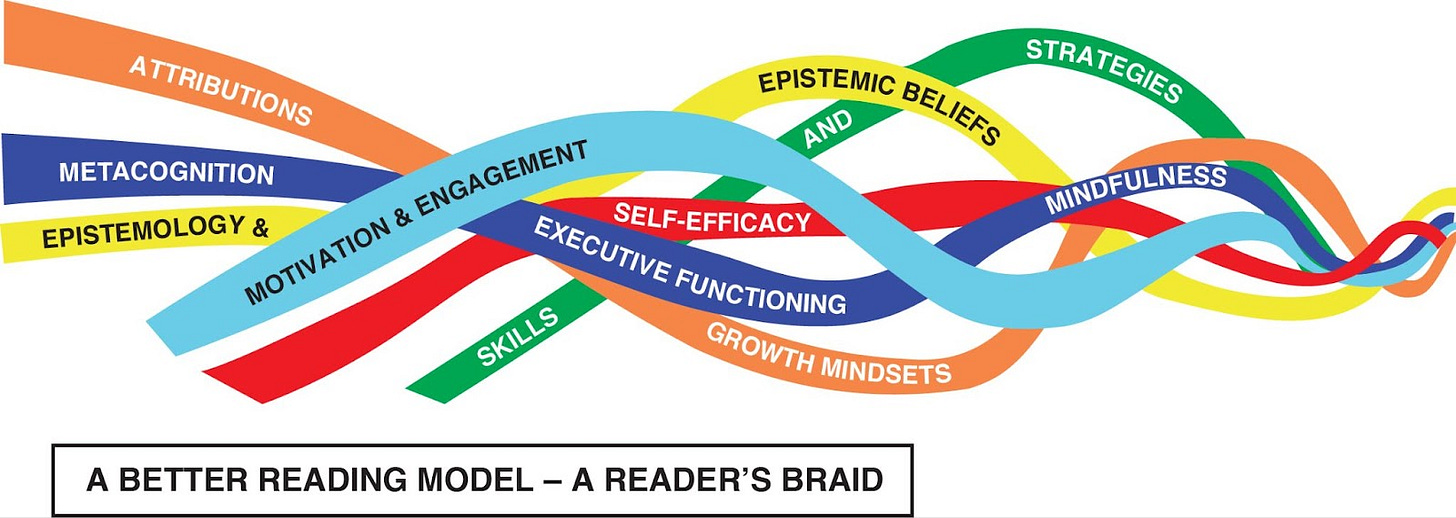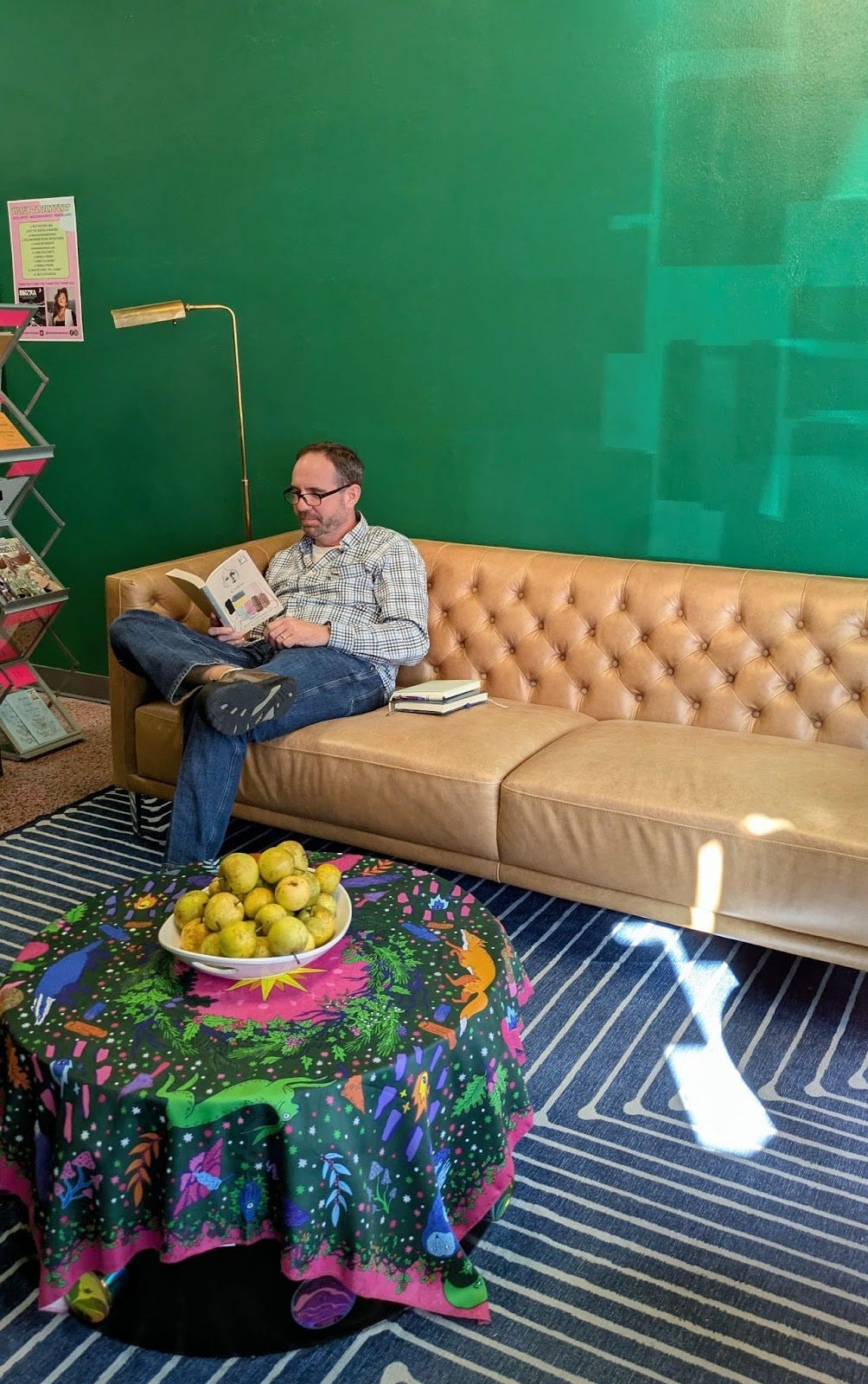Beyond the Basics: Teaching Readers, Not Just Reading
Fostering Critical Thinking and Lifelong Engagement in Today’s Classrooms
As a bookseller (even a very part time bookseller), I've learned there's only so much shelf straightening and dusting you can do.
When the store is quiet, I read.
I like to read the first two chapters or so of books. I can’t outright recommend them to customers, but I can get the gist of them and offer my first impressions when asked.
Recently, I picked up Tender is the Flesh. The premise is stark: All of the world's animals have been infected with a virus that makes meat inedible. People died.
The solution? Instead of everyone becoming vegetarians, society decided to harvest humans!
I like dystopian science fiction/horror, but I knew coming into this novel that it wouldn't be the easiest read.
My expectations were exceeded, and not in the best way. The scenes were as graphic as I've experienced, and I have read my fair share in this genre.
After a couple of chapters, I had to put the book down. It was just too much.
I could see how the descriptions of the scenes - factory farms going into detail - could persuade people who eat meat to understand the problem with it.
At the same time, I was struggling to see the allusions to the bigger ideas I anticipated. Where was the commentary on the environment, people's health, or animal welfare? How would the main character, who despised his job as a "meat processor", find agency and resist? It was just one horrific scene after another.
I turned to Goodreads. This social media platform for readers surfaces the most popular commentary and reviews for a book.
The top review for Tender is the Flesh, by Amanda, put into words what I was thinking and feeling while reading it.
“There were certainly minor suggestions toward some things, but they were quickly set aside in order to continue describing the horrific acts inflicted upon these farmed humans or to meander on about mundane things in the main character's personal life that ended up having little to no significance on the overall system."
This review is what I needed. It gave voice to my concern as I read the book.
Would the readers we are raising today have the wherewithal and awareness to engage in this type of critical thought? I don't believe our students are currently being taught to fully be a reader in an age of mandated reading legislation.
I’m fine with foundational reading skill instruction. But when a primary classroom literacy block revolves primarily around “cracking the code”, there’s very little time left over for the other aspects of becoming a reader.
In my example, I employed many skills to decide that Tender is the Flesh was not for me.
I could enjoy a story while also being mindful about the features of the narrative.
I used my genre knowledge to identify what might be missing from this book.
I had the confidence to question the author.
I knew where to find other credible opinions about the book.
I saw myself as a critical consumer of, and not subject to, the printed word.

Fans of the science of reading (SoR) movement will often say that learning to read does not happen naturally. It’s a rationale for heavily teaching phonics and other foundational reading skills, even when some of the students already have these skills mastered.
Following that logic, would it not also be wise to ensure motivation and engagement, self-efficacy (confidence), epistemology (study of knowledge), and executive functioning (attention) are also part of the curriculum?
I get it - these elements of being a reader are harder to measure. But if we don’t foster these skills, we risk raising passive consumers of information rather than critical, thoughtful individuals who can engage in dialogue with the world around them.
That’s the reader I aspire to be and the reader we should aim to cultivate in our schools.
Related Reading
Jennifer Scoggin and Hannah Schneewind point out in this blog post that, too often, teachers do much of the work of engaging students in reading and writing. “We cannot make students be engaged as readers and writers. Instead, how can we create relevant reading and writing opportunities for them?”
In this article for English Journal, Deidre Faughy used texts (including Dracula) from Project Gutenberg to guide her students to “restory” these classics. She introduced the elements of gothic literature and had students view these books through critical lenses.
Several outdated teaching practices that are still alive in some classrooms - “Zombie Learning Theories” - are highlighted in this blog post for ASCD. This post might make for a good article study with faculty. Which Zombie Learning Theories are still present in our school? Why do they continue to be used in practice?
Premium Resource
On Thursday, I shared a guide for developing a coaching menu. It can offer entry points for potential clients, as well as make sure professional learning is focused on the pressing needs of the staff and school. If you haven’t already, sign up today to ensure you receive the offer in the near future to become a full subscriber and receive more of these premium resources.
Found this post helpful? Share it with a colleague.

